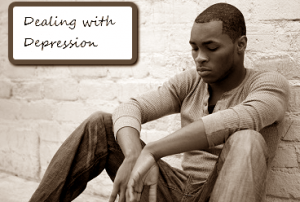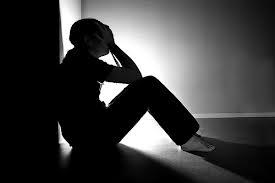Just about anyone can relate to feeling down from time to time. However, what differentiates the occasional passing mood from something more serious, like chronic depression? This article will present the signs and symptoms of depression so that you can tell if your passing mood or if you need to look into other treatment options.
Is It Clinical Depression or Passing Mood
 One key symptom of depression is crying for no reason. You feel overwhelmingly sad, often to the point of tears, but you are not able to identify what exactly is making you feel that way. This is clearly different than sadness that is reactive, such as feeling down after a loved one passes away. If you are unable to identify the trigger to your sad mood, it may signal that you have depression.
One key symptom of depression is crying for no reason. You feel overwhelmingly sad, often to the point of tears, but you are not able to identify what exactly is making you feel that way. This is clearly different than sadness that is reactive, such as feeling down after a loved one passes away. If you are unable to identify the trigger to your sad mood, it may signal that you have depression.
Another symptom of depression is a loss of interest in activities that you used to enjoy. This could take form in many different ways. Maybe you stop engaging in activities that you used to participate in, or maybe you find that you start withdrawing from social situations. There are some reasons for this that vary from individual to individual. It can be a loss of motivation to engage in these activities; if someone is depressed, they may not be driven to seek pleasurable outlets. It can also be due to a general loss of interest, or anhedonia. Another possible reason for this withdrawing from activities may be due to guilt, as someone who is depressed may not feel as if they are worthy of having fun in interesting activities.
How Food Affects Your Passing Mood
Significant changes in appetite could also signal depression. If you suddenly start eating significantly more or less than you used to, it can show that you are experiencing depression. A lot of people turn to food when they are feeling down, which explains why many with depression tend to overeat. On the other hand, some people with depression eat less and generally don’t feel hungry throughout the day. It becomes almost a chore to eat, and there is no motivation to follow steps to care for oneself.
Another sign of depression is a general lack of energy. Someone with depression may appear and feel very lethargic, with little drive to engage in much throughout the day. They may spend much of their time in bed or sitting in one spot for long periods of time. It may take family or friends long periods of time to convince these individuals to go about their day. This should not be attributed to laziness, as it often signals a deeper struggle that the individual has to deal with.
Generally, those with depression experience feelings of hopelessness. There is no positive outlook for the future. No matter how others try to convince them that times will get better, a person with depression will have a hard time seeing that because their mood is so overwhelming.
These are only the tip of the iceberg when it comes to the symptoms of depression. If you believe that you or a loved one may be experiencing this devastating disorder, please consult with a mental health professional to identify the types of treatment that will be most effective for you.








